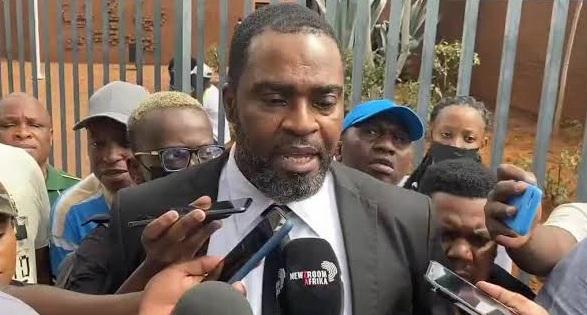Opinion / Columnist
Ike Khumalo's misguided view of Zimbabweans
09 Nov 2025 at 07:23hrs |
0 Views

South African activist and lawyer Ike Thamsanqa Khumalo has long been outspoken on immigration. His views - like those of movements such as Operation Dudula - often oscillate between legitimate debate on migration management and the dangerous edges of xenophobic rhetoric.
While South Africans have every right to question the impact of illegal immigration on jobs, crime, and social services, the national conversation has been clouded by ignorance, stereotypes, and half-truths. What is often missing is context - the why behind migration, the human story within the statistics.
Migration in Africa predates colonial borders. People have always moved - in search of safety, work, opportunity, and dignity. To accuse Zimbabweans of "lacking pride in their country," as Khumalo recently did, is not only false but historically and sociologically ignorant.
Zimbabweans - including many Khumalos across the Limpopo - are deeply proud of their heritage. What they reject is not their nation, but its failed leadership and corrupt governance under Zanu PF. Their migration is an act of survival, not shame.
It is cruelly ironic to condemn people for fleeing economic collapse and repression engineered by a military-backed political elite while simultaneously branding them unpatriotic. To conflate love of country with love of its government is a moral and intellectual failure.
As research consistently shows, migration debates worldwide - whether in South Africa, the UK, or the US - are shaped by misinformation, populism, and fear. Khumalo's comments unfortunately feed that cycle of simplification and hostility, obscuring the structural and historical causes that drive people to move.
Zimbabwe's tragedy is not its people. It is its leaders. To fix migration, fix governance. To restore pride, restore justice. Until then, Zimbabweans - like any human beings - will continue to move where survival, not politics, allows them to breathe.
As the Zulu proverb goes: "Indlela ibuzwa kwabaphambili" - the path is asked from those who have walked it before. Before Khumalo lectures others about pride and belonging, he should first seek to understand the road they have travelled.
While South Africans have every right to question the impact of illegal immigration on jobs, crime, and social services, the national conversation has been clouded by ignorance, stereotypes, and half-truths. What is often missing is context - the why behind migration, the human story within the statistics.
Migration in Africa predates colonial borders. People have always moved - in search of safety, work, opportunity, and dignity. To accuse Zimbabweans of "lacking pride in their country," as Khumalo recently did, is not only false but historically and sociologically ignorant.
Zimbabweans - including many Khumalos across the Limpopo - are deeply proud of their heritage. What they reject is not their nation, but its failed leadership and corrupt governance under Zanu PF. Their migration is an act of survival, not shame.
It is cruelly ironic to condemn people for fleeing economic collapse and repression engineered by a military-backed political elite while simultaneously branding them unpatriotic. To conflate love of country with love of its government is a moral and intellectual failure.
As research consistently shows, migration debates worldwide - whether in South Africa, the UK, or the US - are shaped by misinformation, populism, and fear. Khumalo's comments unfortunately feed that cycle of simplification and hostility, obscuring the structural and historical causes that drive people to move.
Zimbabwe's tragedy is not its people. It is its leaders. To fix migration, fix governance. To restore pride, restore justice. Until then, Zimbabweans - like any human beings - will continue to move where survival, not politics, allows them to breathe.
As the Zulu proverb goes: "Indlela ibuzwa kwabaphambili" - the path is asked from those who have walked it before. Before Khumalo lectures others about pride and belonging, he should first seek to understand the road they have travelled.
Source - online
All articles and letters published on Bulawayo24 have been independently written by members of Bulawayo24's community. The views of users published on Bulawayo24 are therefore their own and do not necessarily represent the views of Bulawayo24. Bulawayo24 editors also reserve the right to edit or delete any and all comments received.
Join the discussion
Loading comments…





























